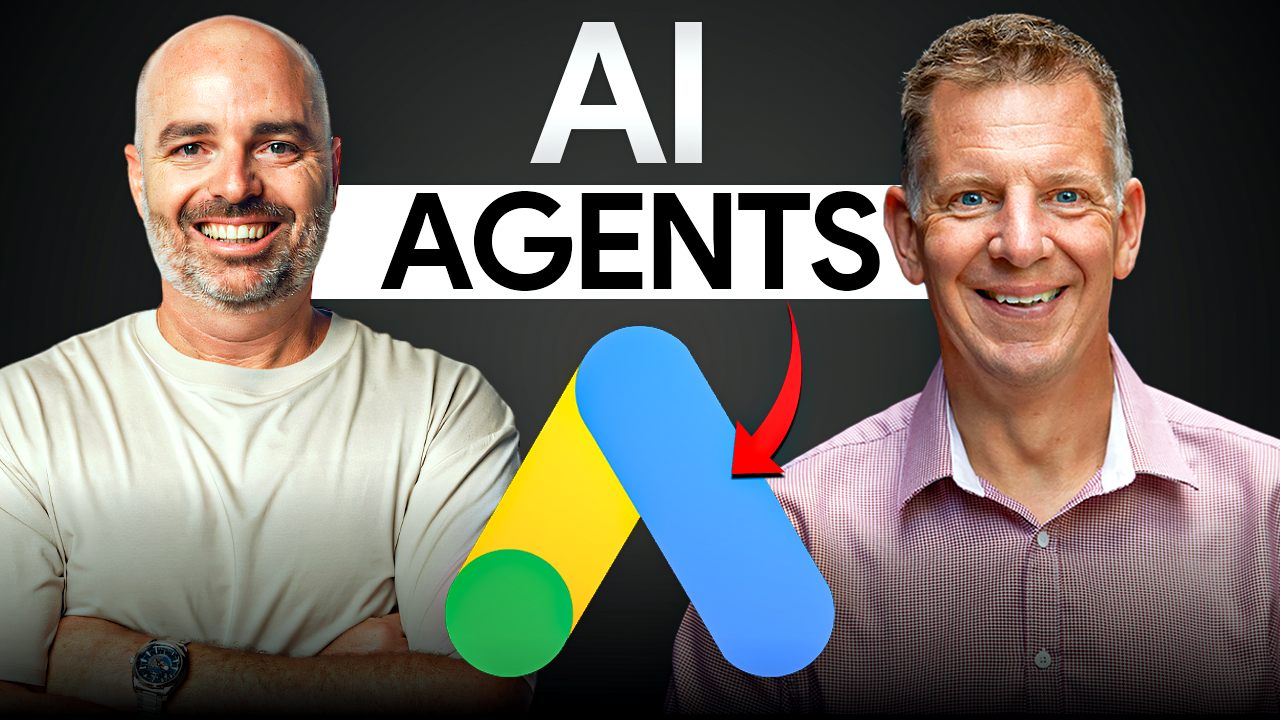
Mike Rhodes Interview | Automation in Google Ads
May 14, 2025Discover how AI is changing Google Ads and how digital marketers can evolve to stay ahead. Expert Mike Rhodes shares a powerful 7-level framework — from manual ad managers to AI-powered strategists.
Introduction: The AI Revolution in Digital Marketing
AI is revolutionizing how we approach Google Ads and digital marketing. In this in-depth conversation, Aaron Young interviews Mike Rhodes, one of the industry's most respected Google Ads experts. Together, they explore how artificial intelligence is reshaping advertising — and what marketers, freelancers, and agency owners must do to remain competitive in 2025 and beyond.

The 7 Levels of Google Ads Automation
Mike Rhodes introduces a seven-level framework designed to help marketers understand where they stand in the evolution of automation and where they need to go next.
Level 0: Button Clicker (Manual Google Ads Management)
In the early days, marketers manually adjusted bids and keywords. This approach, while common in 2008, is now outdated. It’s the starting point for many who haven't adopted automation tools in their advertising workflows.
Level 1: Rule Designer (Google Ads Automation Rules)
The introduction of Google Ads automated rules in 2011 allowed marketers to create basic automation logic using "if this, then that" conditions. Though limited, these rules marked a crucial turning point.
Level 2: Target Setter (Using Smart Bidding in Google Ads)
With smart bidding strategies like Target CPA and Target ROAS, advertisers began setting performance goals and letting Google's machine learning do the heavy lifting.
Level 3: Script Designer (Advanced Google Ads Automation with Scripts)
For more control and customization, Google Ads scripts offer powerful solutions. Mike shares his "4 C's" scripting framework: Check, Chart, Change, Cognition — allowing advertisers to monitor, report, act, and even integrate with AI models.
Level 4: Insight Storyteller (Data Analysis with AI Tools)
AI-powered analysis tools like ChatGPT now enable advertisers to uncover insights from campaign data and generate meaningful reports. This level transforms raw data into business-driven narratives.
Level 5: Agent Conductor (Managing AI Agents for PPC Campaigns)
This stage involves coordinating AI agents — tools that autonomously analyze, suggest, and eventually act on campaign optimizations. Examples include negative keyword detection, performance trend analysis, and landing page optimization.
Level 6: Autonomous Agents (The Future of AI in Digital Advertising)
The future lies in autonomous AI agents capable of executing full campaign strategies with minimal human oversight. This is where AI manages everything from bidding to landing page personalization.
Why Marketers Must Embrace AI in Google Ads
Mike and Aaron agree: AI isn’t here to replace marketers — it’s here to amplify them. Those who adapt will outperform those who don’t.
“Your job isn’t being taken by AI. It’s being taken by someone who knows how to use AI.”
Whether you’re a freelancer managing 10 clients or an agency with 50, you can no longer afford to ignore the AI shift. The efficiency, scalability, and insight it offers will soon become industry standards.
Practical Steps to Start Using AI in Google Ads Today
-
Start with Scripts: Use ready-made scripts from trusted sources like Mike Rhodes, Fred Vallaeys, or Search Engine Land.
-
Analyze Campaigns with ChatGPT: Upload performance reports and let AI generate actionable insights.
-
Leverage AI Prompts: Ask AI to write prompts for tasks you want to accomplish — from analysis to copywriting.
-
Build AI Agents: Create simple agents that monitor and report on ad performance.
-
Automate Reporting: Use AI to schedule and generate weekly insight reports with visualizations.
👉The Future of Google Ads: Adapting to AI and Automation
Final Thoughts: The Urgency of Upskilling in the Age of AI
Digital marketing in 2025 is being redefined by AI. Professionals who invest now will gain exponential leverage. Those who hesitate risk falling behind.
“If you’re not at least 30% more efficient by the end of this year, you may not be able to compete.”
Start small, but start now. Test AI tools. Use AI to write prompts, analyze performance, and generate client-ready narratives. As Mike says, “You can’t jump to Room 30 in the haunted house. But once you’ve walked through it, you’ll never want to go back.”
